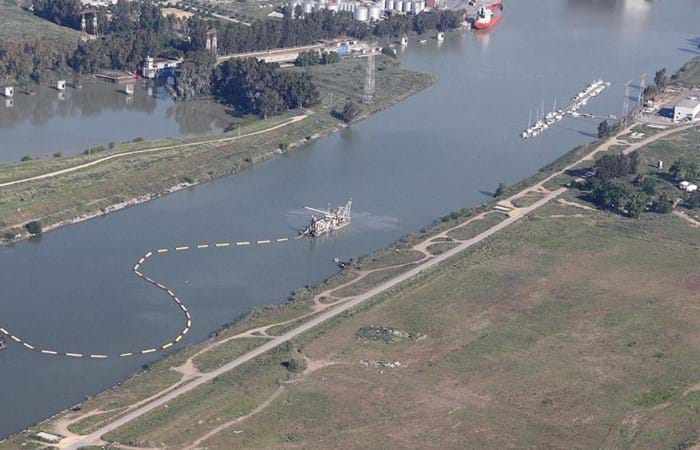Seville is located 80 km land inwards and it is Spain’s only commercial river port. Access is along the Rio Guadalquivir. The current dimensions and depth of the port impose limitations on the breadth and draughts of the vessels that use it, putting the future of the port at risk. So the Port Authority developed a New Maritime Approach that provides for the deepening and widening of the approaches to the port.
The complete dredging project, amounting to approximately EUR 15 million, started with maintenance dredging in the entrance channel and the removal of the top layer of the construction pit for the future lock down to a depth of about 5.50 m. A trench with a depth of 15.5 m was then dredged for the foundations of the dike round the construction pit. After the completion of the lock, the new entrance channels will be dredged to a depth of 9.10 m downstream and 7.70 m upstream. The dredged material was pumped to fill areas (recintos) around the construction area, sometimes over distances of more than 2000 m. The work was done by Boskalis’ 3,400 kW dieselelectric CSD Para I, a dredger with a maximum working depth of 17.50 m. The ship is equipped with a special cooling system to cope with tropical temperatures, which is ideal for the hot summers in Seville, where temperatures can reach 45oC. Before this dredging work started, the ship was also adapted to comply with the client’s requirements relating to noise reduction.
